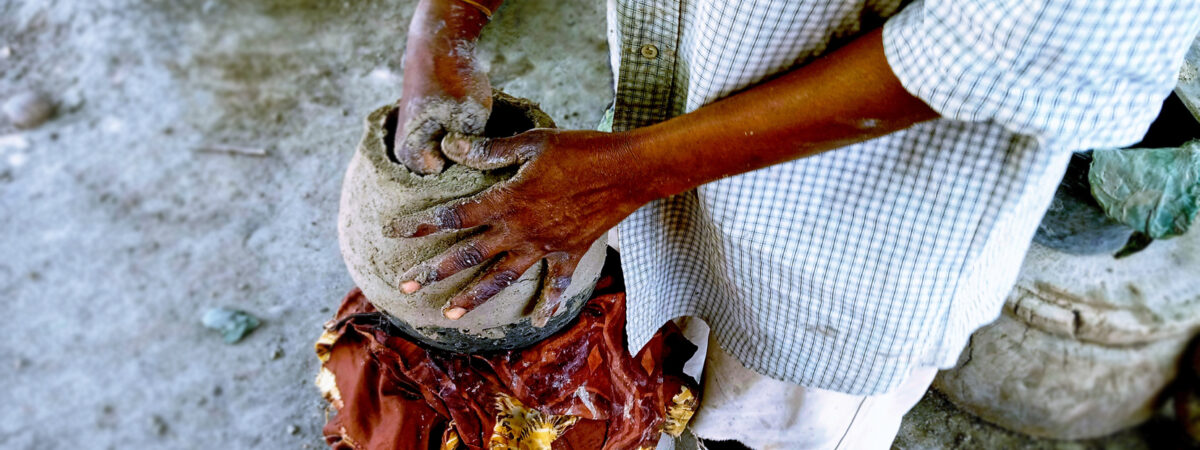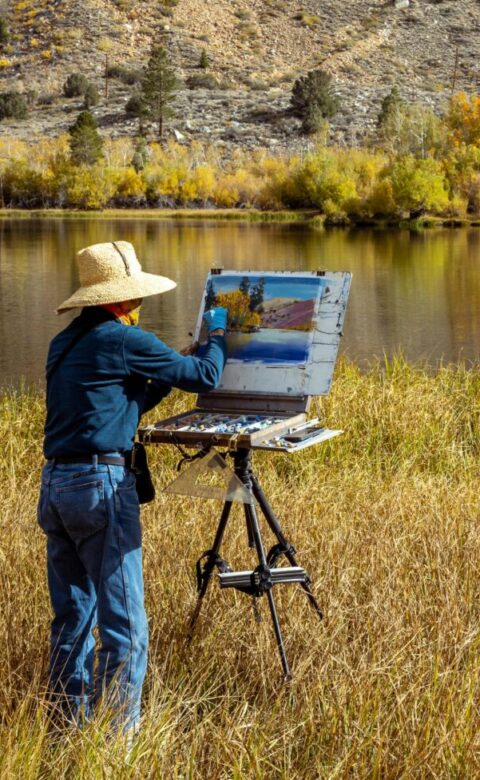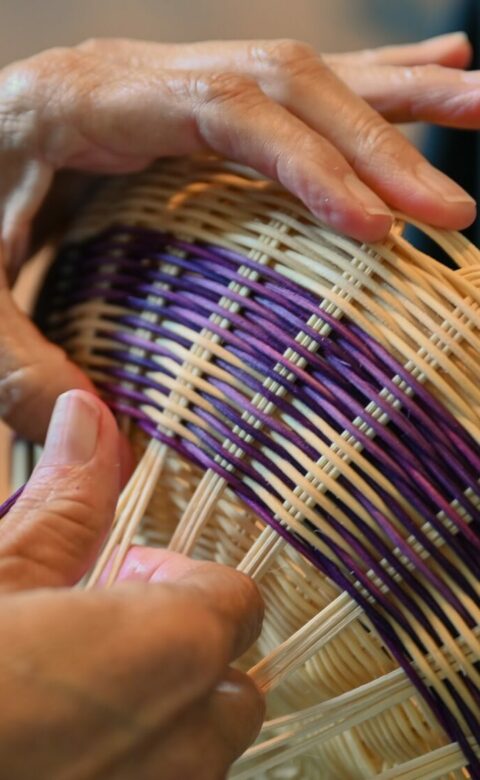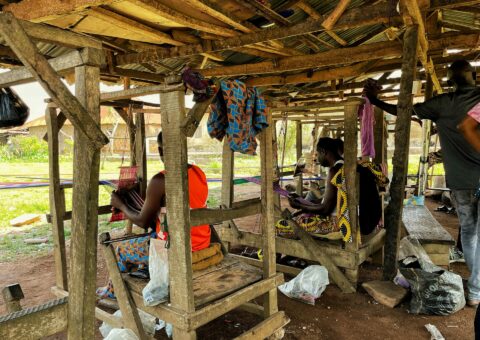Ilorin is known for having the longest pottery heritage and the largest concentration of female artisans in Kwara State (and Nigeria as a whole). Despite the rise of modern technology and its resulting focus on mass production, the women of Dada Pottery have kept the art of handmade pottery alive — and thriving — with their distinctive pieces.
Located in Okelele on about an acre of land is the Dada Pottery, a mainstay of cultural preservation and Nigeria’s oldest and largest traditional pottery workshop. Continuing a proud pottery-making practice said to be as old as Ilorin itself, Dada is busy 24/7 with over 100 women scattered across various sections, skillfully creating handmade wares in an array of colours, designs, shapes, and sizes.
The busy creative community, which doubles as a pottery market, beckons visitors from far and wide to witness the meticulous artistry of the Dada women potters. That’s why you’ll always find tourists and locals flocking here to purchase these special items, each with its own story to tell.
The Dada community’s diverse artisans work tirelessly to preserve traditional African culture through their unique vocation. While the community is home to several skilled traditional weavers, it is perhaps best known for its mastery of pottery, a craft that has developed particularly strong roots in the area.
The unmistakable prominence of pottery in the community is a testament to the remarkable skill and passion of the Dada potters, who have become renowned for their exquisite creations that exemplify African heritage and ingenuity.
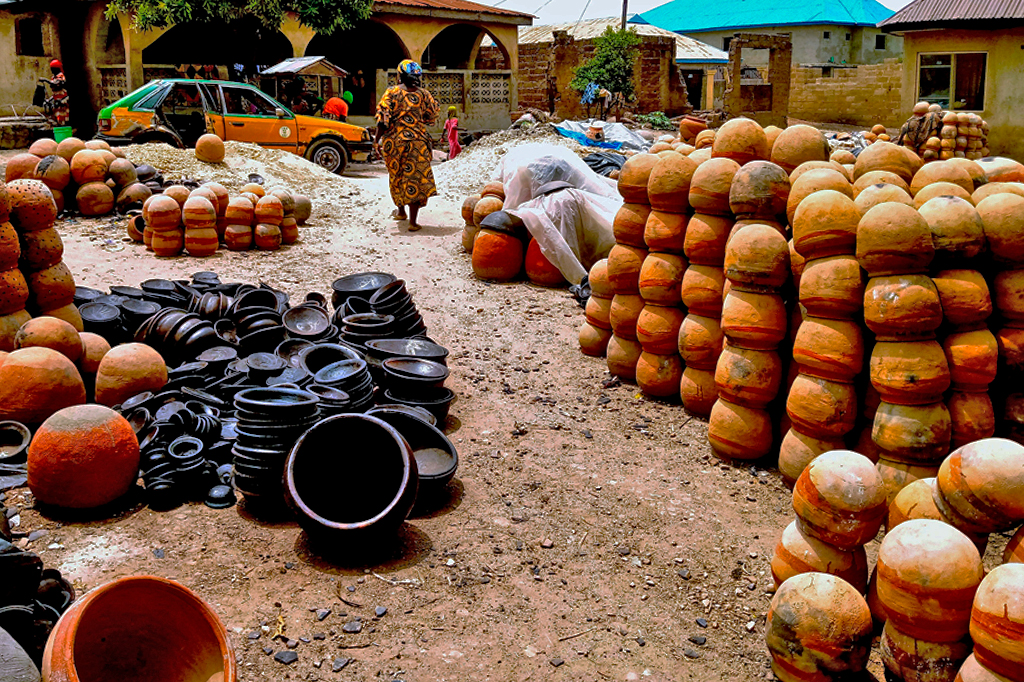
When you step into the pottery market, your senses are instantly enveloped by a kaleidoscope of sights, sounds, and scents. An array of handcrafted pottery pieces are meticulously arranged on top of each other, forming an impressive mosaic wall of carefully formed shapes.
The most popular items in Dada Pottery are Isaasun (cooking pots), Ikoko Agbo or Oru (concoction/herbal pots), Fitila (clay lamps), Amu (water pots), and other utilitarian clay wares. These timeless pieces not only serve as functional household items but also as cherished works of art that embody the essence of traditional African culture.
Crafting pottery items in the market is an intricate and time-consuming process that demands both patience and skill. Yet, the Dada women potters have developed a deep love for every step of the process, as evidenced by their unwavering passion for the craft.
Their devotion to traditional pottery-making is immeasurable, from sourcing clay to pounding, soaking, kneading, and shaping it into the items that express their creative minds and inventive spirit. As they work their magic, the potters seem to be in a world of their own, lost in the joy and satisfaction that comes from creating something truly beautiful and useful with your own hands.
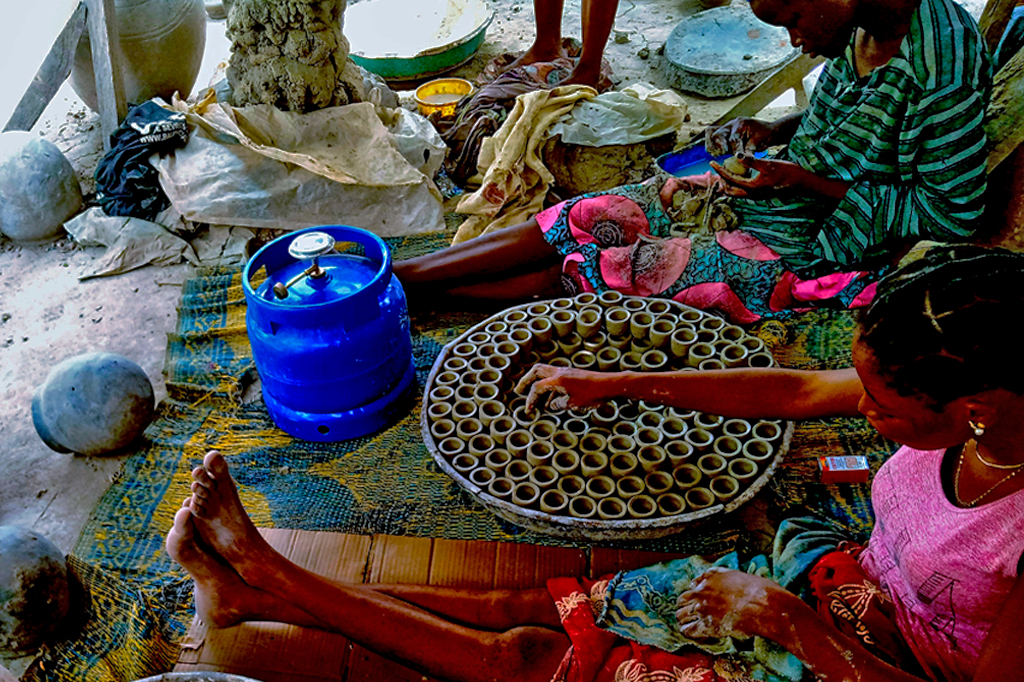
When it comes to tracing the origins of how pottery started in the Dada community, there is little concrete evidence to indicate where or when it all began. However, the beginning lies long before the era of Ladi Kwali, recognised as the pioneer of modern pottery in Nigeria.
Despite the lack of historical records, one of the oldest potters in the market, nicknamed Hajia, sheds some light on the community’s pottery heritage. “I can’t say for sure when this market started. We’ve been in the pottery business since childhood. I learned the art of pottery making from my mother, and she learned it from her mother before her. It’s a generational trade that’s as old as the city of Ilorin itself.”
Adding to the enigmatic origin story of the pottery market in Dada, another elderly potter shared her perspective. “Legend has it that this market was started by a woman and her family,” she said. “But we don’t know much about who she was or where she came from.”
Her words deepen the mystery surrounding the market’s origins, and demonstrate the powerful role of women in shaping the cultural identity of the Dada community. Despite the unknowns, the market remains a vibrant hive of activity, a testament to the enduring spirit of creativity and resilience that has sustained the Dada potters for generations.
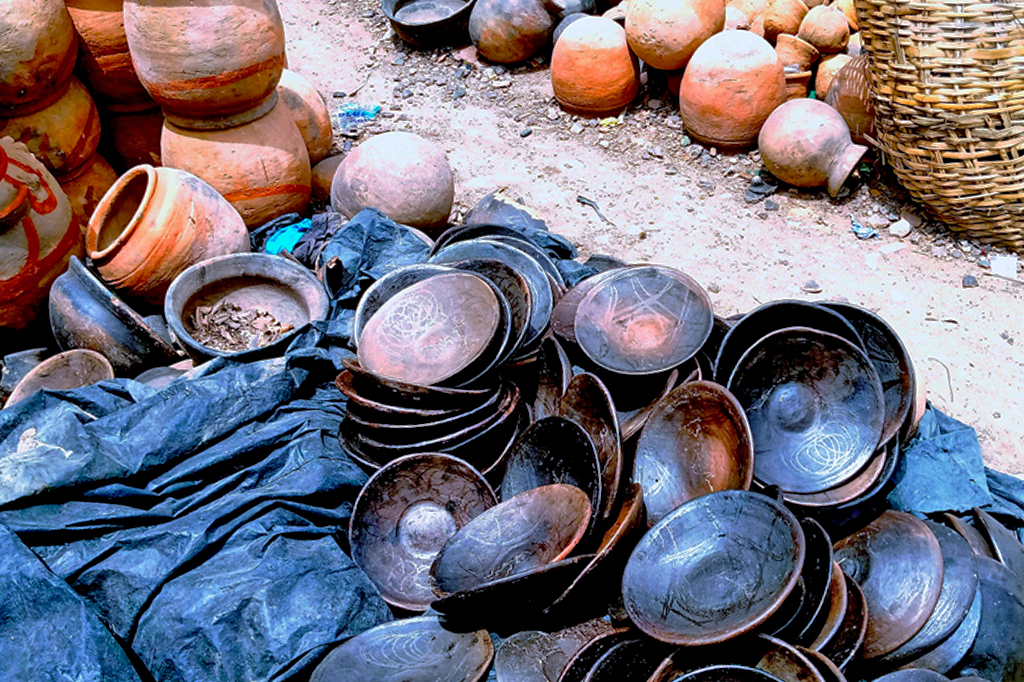
As the women of Dada Pottery continue to work traditionally, advancements in modern technology and the use of machines in making clay, ceramic, and steel items have impacted the demand for handmade wares.
But the Dada potters are determined to keep their traditional craft alive despite all hurdles. For these women, pottery-making is not just a source of income, but a way of life and a cherished tradition that has sustained their families for generations. Pottery is what they know, and what they do best.
That’s why they’ve developed innovative techniques to produce handmade pottery that remains relevant in today’s world. From ready-made to customised wares, the market boasts experts who excel in crafting pots, plates, drinking cups, and flower pots. Their dedication produces high-quality pottery items, whether they ultimately represent a piece of African tradition or simply a functional item for everyday use.
According to Hajia, “The market is organised into different sections, each responsible for producing various pottery wares. Visitors need to only express their requirements to be directed to the right section for their desired item.”
While the low-income surroundings of Dada Pottery may not be visually striking at first glance, the pottery wares themselves captivate visitors. As you tour the market, you will find a dazzling array in various colours and sizes, painstakingly stacked and arranged.

When you go further, you will see heaps of newly crafted clay wares smouldering on fires in the local industrial estate of Dada Pottery, adding to the market’s unique atmosphere. You can also witness firsthand how the pottery-making tradition has become predominantly hereditary and vocational. Children learn to create clay items from their mothers, and pottery interns learn the craft from various women in different sections of the market.
“I learned from my mother and I’ll teach my children to keep the tradition alive. They can go to school and still learn pottery to show that potters can be educated too, contrary to what many people think”, said one young woman potter.
Hajia chimed in: “Many schools across the country visit Dada Pottery on an excursion and some students from tertiary [third-level] institutes also come here for their IT [industrial training] placement where we teach them the art of pottery making. We also receive visitors regularly from different parts of the country and abroad.”
“We only need the government to support us by developing our community and putting adequate infrastructures in place to make our jobs easier and more convenient,” Hajia concluded, ever mindful that it takes an unrelenting effort to keep their precious tradition alive and prospering in today’s Nigeria.

